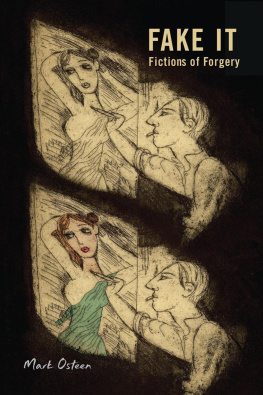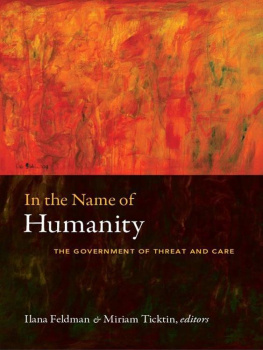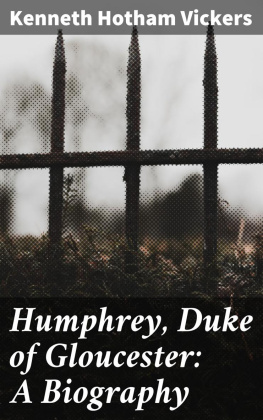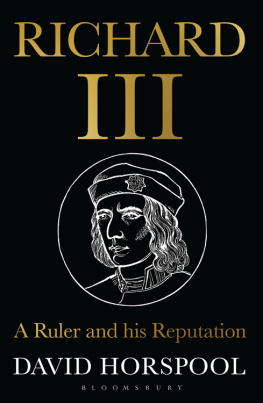By the same author
Flight Unlimited (with Eric Mller)
Flight Unlimited 95 (with Eric Mller)
Flight Fantastic: The Illustrated History of Aerobatics
Jeff Beck: Crazy Fingers
Richard III: The Maligned King
Richard III: A Small Guide to the Great Debate
Finding Richard III: The Official Account of the Retrieval and Reburial Project (Ed.)
(with J. Ashdown-Hill, D. Johnson, W. Johnson & P.J. Langley)
Published by Imprimis Imprimatur
21 Havergate, Horstead, NR12 7EJ
Annette Carson, April 2015
The right of Annette Carson to be identified as the Author of this work has been asserted in accordance with the Copyrights, Designs and Patents Act, 1988.
All rights reserved. No part of this book may be reprinted or reproduced or utilized in any form or by any electronic, mechanical or other means, now known or hereafter invented, including photocopying and recording, or in any information storage or retrieval system, without the permission in writing from the copyright holder.
British Library Cataloguing in Publication Data.
A catalogue record for this book is available from the British Library.
eISBN 978-0-9576840-5-8
Introduction
The overall objective of this study has been to establish a greater understanding of the offices of Lord Protector and High Constable as held by Richard, Duke of Gloucester during the months of April to June 1483, between the death of his brother Edward IV and his assumption of the throne as Richard III. Both offices have entailed consideration of how precedents were set and frameworks put in place for their effective operation within the administration of fifteenth-century England. The Lord Protector, when appointed, is generally recognized to have been a leading member of the government, but less well known is that the High Constable of England, as one of the Great Officers of State, wielded national powers which included some that were second only to the king himself, principally when dealing with rebellion, insurrection or any of the many other activities deemed to be treasonable.
In order to understand these two offices I have gratefully relied upon a handful of historians whose prior studies have provided excellent secondary sources in their chosen specialties: J.S. Roskell has been invaluable for the origins of the office of Lord Protector; P.L. Johnson has been my source for a synopsis of the protectorates of Richard, Duke of York; and M.H. Keen and G.D. Squibb have produced masterly works on the High Constable and his Court. This latter topic has been of interest to me since the early 2000s when, living abroad and working on Richard III: The Maligned King (published 2008), I sought information on the powers and competencies of the Constables Court. On my return I determined to rectify this gap in my knowledge. I also wanted to clarify the office of Lord Protector, since the standard biographies of Richard III seemed to assume that the holder was at liberty to make of it whatever he wished, and that it equipped a particularly ambitious or unscrupulous incumbent, i.e. Richard when Duke of Gloucester, with powers equivalent to those of a regent which provided a pathway to the seizure of supreme power. I now believe this to be an erroneous assumption, although understandable in view of the misleading way it was characterized by commentators of the fifteenth and sixteenth centuries who knew nothing of the constitutional position it occupied. This position was, in fact, very precise: having been inaugurated and recorded by decision of the Kings Council in 1422 to apply during Henry VIs minority, it had been set within a specific governmental framework that remained constant thereafter, with the protectors tenure defined by Parliament each time a protectorate was subsequently established. Protectors were appointed in varying circumstances in the fifteenth century, but always when the king was indisposed or under-age and deemed unable to exert personal rule.
A keen appreciation of this constitutional dispensation had clearly been uppermost in the minds of those members of the governing Kings Council who confirmed Richard, Duke of Gloucester in the office of protector in May 1483. Hence the title of this essay is taken from those words of the chronicle of Crowland Abbey which record Richards appointment, with the precedent of 1422 still being cited sixty years after the event:
Richard, Duke of Gloucester received that solemn office which had once fallen to Duke Humphrey of Gloucester who, during the minority of King Henry [VI], was called Protector of the Kingdom. He exercised this authority with the consent and the good-will of all the lords
The offices of Lord Protector and High Constable were among the highest in the realm, but for whatever reasons they have remained widely misunderstood and their precise significance is very often glossed over. In considering the career of Richard, Duke of Gloucester, to ignore the way in which the responsibilities of these offices impacted upon him is to overlook an important contributing factor. In particular the role of the Lord Protector, along with the question of what he was meant to protect, have suffered enormous distortion in the popular mind, especially since the title was employed in different contexts in later centuries and endured considerable disfavour after its association with Oliver Cromwell in the 1650s. When applied to Richard III it still evokes the age-old error that assumes his role to have been protector of the sons of Edward IV. Nothing could be further from the truth, as the facts will demonstrate, and indeed the title itself is very clear: Protector and Defender of the Realm and Church in England and Principal Councillor of the King. A review of secondary literature suggests that serious confusion exists in the historiography in this respect. For example, Professor Michael Hicks, while correctly confirming that Richard of Gloucester was the only possible candidate to be protector, and citing the precedents of Humphrey, Duke of Gloucester and Richard, Duke of York, writes confusingly of Duke Humphreys protectorship that it conferred the right to protect the person of the king and the realm.
Whereas the origin of the office of protector is well established, much more difficult is to assign a date from which the ancient office of High Constable of England existed, although its early raison dtre in the mediaeval context of knighthood and military campaigning is self-evident. References date back to the thirteenth century at least, from origins as a standing lieutenant of the king delivering judgement in time of war. Edward IV asserted, perhaps rather grandiloquently, that it had existed since the Conquest. The High Constable was personally appointed by grant of the king; and it will come as no surprise that the powers and purview of the Constable and his Court were continually developed to suit changing circumstances as each monarch came to deal with increasing unrest. The task of tracing their development one might even say their transformation under the English kings of the fourteenth and fifteenth centuries is significantly hindered by the paucity of coherent documentation, a hindrance which is much greater when examining the critically important Constables Court which left no records.
















